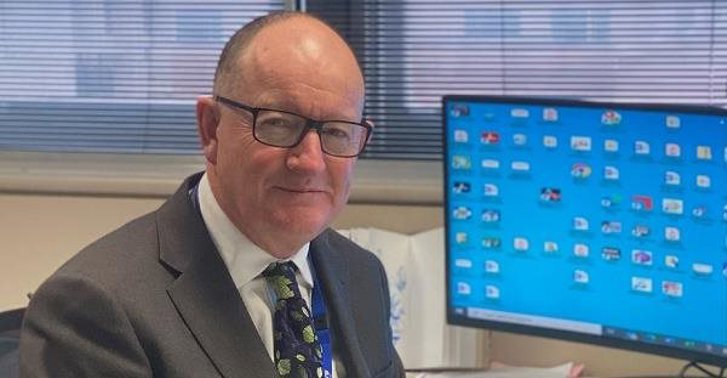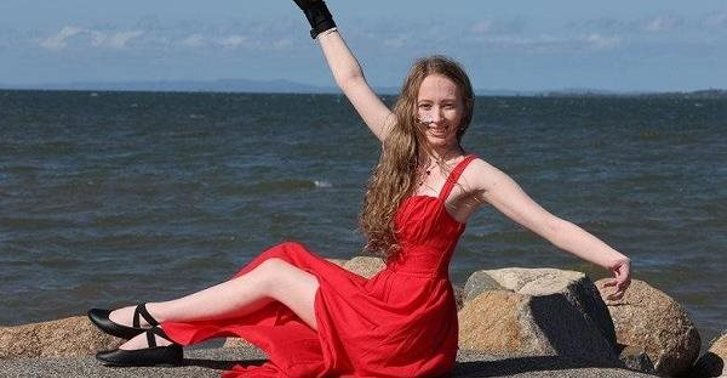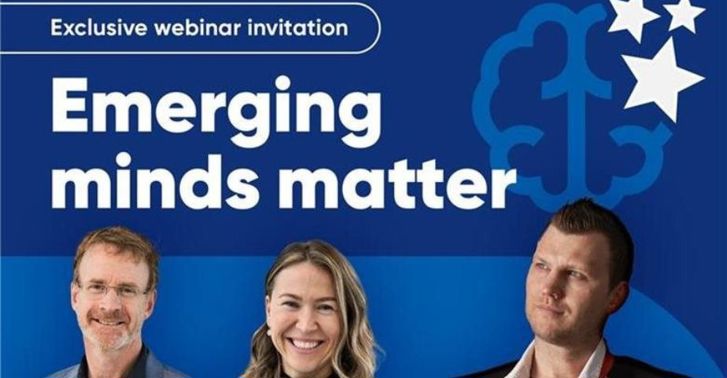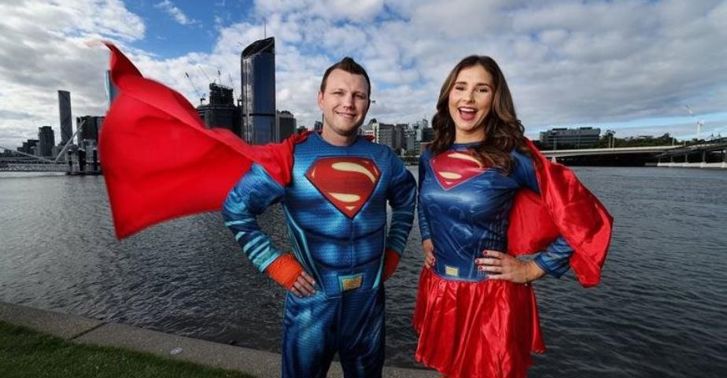Dedicated to young adults aged 16-25
Some of the more common mental health challenges that may be faced by young adults include depression, anxiety and eating disorders. But there are many more concerns that could be added to this list. Along with these come other problems and behaviours that can impact on everyday functioning, making the most basic of tasks overwhelming.
The Emotional Health Unit here at MYAHC delivers specialist mental health care to young adults which is evidence based and consumer driven. The care that is provided by our experienced mental health team is based on the individual strengths of our patients and is focused on their recovery.
Thanks to the generosity of Mr Peter Flynn of the Amanda Flynn Foundation, Mater will deliver specialist inpatient care to young adults who are experiencing anxiety, depression and other mental health conditions at the Amanda Flynn Clinic. In Partnership with ClearThinking Queensland, appropriate models of care for young adults have been created for the Recovery College.
Our services
Amanda Flynn Clinic - Inpatient Unit
The Amanda Flynn Clinic is the only private inpatient mental health facility in Queensland that caters specifically for young people aged 16- 25 years. Young people are admitted voluntarily. We use a collaborative model of treatment that is consumer driven and deliver care that is based on their individual strengths.
Our clinic has a mixture of single and shared rooms. There are no bedrooms with ensuites but there are single bathrooms throughout the clinic. We are mindful that most people prefer to have single rooms and we will do our best to accommodate requests whenever possible.
Young adults who are admitted to the Amanda Flynn Clinic also have access to therapeutic day programs focused on recovery that are run at our Recovery College. This is located right next door to the clinic and is another part of the Emotional Health Unit.
Experience shows us that working with the support systems, including family and partners, that surround young people often results in the best outcomes for all involved. Therefore, our team may be in contact to organise a meeting to support our young people’s recovery journey. Due to the available hours of clinicians, these meetings ordinarily occur during business hours so they may be required to take a few hours off work to attend. However, if needed, we are able to provide the necessary medical certificates for these occasions.
As we are based at a hospital, the Amanda Flynn Clinic is a tobacco and substance free zone. We do have access to some great resources that can help cut back or stop during their admission and/or assist with other substance use issues if needed.
Get in touch today to find out more
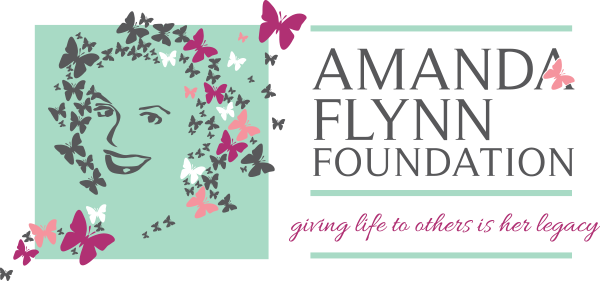
Proudly supported by the Amanda Flynn Foundation
The Amanda Flynn Clinic is made possible thanks to the generosity of Mr Peter Flynn of the Amanda Flynn Foundation, which was formed in honour of his daughter Amanda.
Sadly, Amanda struggled with mental illness that consumed her life and ultimately took her away from her loving family and the rest of the world. Amanda passed away at only 27 years of age.
Recovery College
The Emotional Health Unit’s Recovery College is the first of its kind in Queensland and we use innovative ways of providing mental health treatment. Even though these concepts are relatively new in Australia, there are well-established programs based on similar ideas already being offered internationally and interstate.
Our Recovery College uses a consumer driven educational framework focused on recovery to assist young people in recovering from their mental health issues. All of the modules we offer are run by trained and skilled mental health clinicians from all different backgrounds and co designed by young people with real life experience. So, you can be certain that the information you are receiving is relevant, evidence based and effective.
One of the key differences between what our Recovery College can offer, as opposed to a traditional mental health day program, is that you don’t attend a 'generic' group program where some of the information relates to your situation, and some doesn’t. You get to choose and complete just the training modules that relate specifically to you and what is happening for you. This may mean completing one module or several over a period of time. Our aim is to give you the relevant skills and information to help you on your own personal road to recovery.
Each training module is different but below are a few ideas about what you can expect at our Recovery College:
- Most single modules go for about one to three hours each.
- Modules will be made up of different activities that are engaging and make your learning easier. There is nothing more boring than just sitting there while someone talks at you!
- The modules are designed so that groups of people who need to learn about similar things can learn together, so this means that we have:
- modules just for young adults (this is what most modules will be)
- modules that are just for other people (e.g. family members, significant others or some health professionals).
- Just like any training, you will receive a certificate of completion at the end of each training module.
We offer modules on a range of topics, and you can attend the same module more than once if you like. We have a base training module for young adults who are attending the Recovery College which is called This is My Recovery and the completion of this is recommended before progressing to more specific training modules.
The cost of attending our modules is minimal to you. Most of the private health funds will cover the cost of each training module and if you don’t have private health insurance, you can pay a fee to attend modules that are of interest to you.
If you are interested in completing any of the training modules that we offer, please contact us so as we can send you some information or request some information here. This form will allow us to determine whether the module you are interested in will meet your needs.
Consulting Suites
The consulting suites here at the Emotional Health Unit have a dedicated reception area with private billing facilities and comfortable waiting areas and has been purposefully designed to promote privacy and confidentiality.
Lead by experienced mental health practitioners, the consulting suites at the Emotional Health Unit provide a range of services for patients of all ages who require mental health assessment, treatment and follow-up for depression, anxiety, and other mental health conditions.
Psychiatry
Our psychiatrists can provide assessment and treatment of a range of mental and emotional health conditions. We have psychiatrists with interests in a range of specialty areas including child and adolescent, young adult, adult and consultation liaison psychiatry.
Psychology
Our psychologists can assist with diagnosis and treatment of a range of mental health conditions in children, adolescents and adults. The therapy offered may assist with management of stress, depression, mood and anxiety and relationship difficulties including family-based relationships.
Nurse Practitioner
Our Nurse Practitioners can provide assessment, treatment, and referral for a range of mental and emotional health difficulties. They have years of experience in supporting young adults, adults and families with mental health concerns.
Mental health, social work and art therapy
Our accredited mental health social workers provide assessment, diagnosis and treatment services to individuals, couples, families and groups who are experiencing a range of mental health issues. They help clients to resolve their presenting psychological problems and associated social and environmental issues, with the aim of improving their quality of life. Art therapists are tertiary qualified and have expertise in using art as a medium for recovery. They also have specific skills in counselling and psychotherapy and can assist with a range of mental health concerns.

To speak to someone urgently, call Lifeline Australia on 13 11 14.
Lifeline is a confidential 24-hour telephone crisis support service available from a landline, payphone or mobile.
Frequently Asked Questions
What is Emotional Health?
Emotional Health is a state of wellbeing. Just as there are many benefits from being physically healthy, you can benefit from being emotionally healthy. At the Emotional Health Unit, we strive to provide you with the steps you can take to improve your overall Emotional Health and understand your emotions.
How do I know if I should come into hospital?
It is quite normal to experience days where you feel ok and other days where you feel terrible. Through all of our services here at Emotional Health Unit, you will learn lots of new coping and resilience strategies, so when you do experience those terrible days you will be equipped with the tools to manage the situation more effectively. Despite all the great benefits of our inpatient program, we do appreciate that it can be quite scary to come into hospital. Feel free to contact the Emotional Health team who'll happily show you around our facilities and answer any questions that you have. You can reach our team on 07 3163 6102.
Can I go on leave?
Yes. We expect young people will want to spend time out of hospital with family and friends outside of therapy time. We do need to know if you’re going out and when you will be back, so please let staff know.
How much do I need to pay to come to hospital?
The cost of our inpatient program will depend on whether you have private health insurance and your level of cover. If you provide us with your health fund membership number, we can determine how much it will cost you for an inpatient stay. If you do not have private health insurance, please contact us to find out more on 07 3163 6102.
Do I need to tell my parents if I come to hospital? Can I just come without anyone knowing?
The staff at Emotional Health Unit respect your rights to privacy and confidentiality. However, there are limits to confidentiality which staff will need to uphold. If you are over 18 years of age, you do not have to inform your parents/carer that you are in hospital. However, we strongly encourage you to let your family know. If you are under 18 years of age, you will need to let you parent or caregiver know that you wish to come into hospital. Please be reassured that anything you discuss with your doctor or other staff will remain confidential, unless it relates to your immediate safety. If you have concerns with speaking to your parent/caregiver about admission, or if you have any other question relating to privacy/confidentiality, please do not hesitate to contact us on 07 3163 6102.
What do I bring if I need to check in?
Please bring the following on the day of admission:
- your referral from your GP or Specialist (e.g. Psychiatrist)
- your Medicare card and private health fund card
- any medications you are currently taking
- toiletries, appropriate clothing (a jumper as air conditioning can get cold), money, trainers and gym gear
- phone and another devices.
How do I check in?
Once you have an admission date and time booked, all you have to do is arrive at the front desk on Level 7 of the Salmon Building on the day. Our team will proceed with the check in process with you. It is very important to arrive on time because if you are running late, this will impact on other admissions on the day. Some people experience stress coming into hospital, therefore, we make every effort to make the admission process as easy as possible for all patients.
Will I be given medication when I come to hospital?
We will discuss a range of helpful strategies to get you on the road to recovery. Medication may be something your doctor discusses with you. If you are already on medication, please remember to bring it with you to hospital.
Can my friends visit me when I am here?
Visitors are welcomed between 3pm to 8pm on weekdays and between 10am to 8pm on weekends.
You can check our specific times when you are admitted into hospital. We just ask that visitors respect visiting hours so that therapy time is not interrupted. Our focus is on getting you well and your family and friends will understand that.
It’s totally OK if you want some down time and not to have visitors for a while, just let the staff know.
What happens if I want to leave when I get there?
If you change your mind about coming into hospital, please let a staff member know (e.g. nursing staff; your treating doctor; the intake officer). As we are a voluntary admissions hospital, it is your choice to leave if you do not want to stay. However, we will try our best to work out if there is anything that is upsetting you and understand what would make your stay more comfortable. If you decide to leave and we are concerned for your safety we have a responsibility to let someone know.
What happens if I can’t attend a group I’m booked in for in the Recovery College?
If you can’t make it for a group, please let us know as soon as possible. You can call through to our friendly administration staff, who will put you through to a clinician to check in with you. If we are expecting you and you don’t arrive, a clinician will do their best to get in contact with you and make sure everything is ok, sometimes this might mean contacting a next of kin if we can’t get on to you.
What transport or parking is available for the Recovery College?
Public transport to the Mater is very convenient. The Mater Hill bus station is right across the road and the train station is a short walk. Parking in one of Mater’s carparks is $24 to park for two to eight hours.
Will there be food provided at Recovery College?
There will be light refreshments, but it’s recommended to have some lunch before you arrive.
Can I drive?
You are advised not to drive while an inpatient at the Amanda Flynn Clinic.
